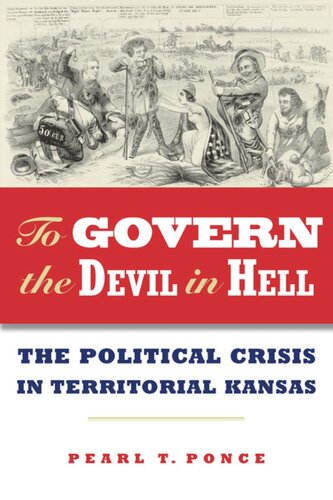

Most ebook files are in PDF format, so you can easily read them using various software such as Foxit Reader or directly on the Google Chrome browser.
Some ebook files are released by publishers in other formats such as .awz, .mobi, .epub, .fb2, etc. You may need to install specific software to read these formats on mobile/PC, such as Calibre.
Please read the tutorial at this link: https://ebookbell.com/faq
We offer FREE conversion to the popular formats you request; however, this may take some time. Therefore, right after payment, please email us, and we will try to provide the service as quickly as possible.
For some exceptional file formats or broken links (if any), please refrain from opening any disputes. Instead, email us first, and we will try to assist within a maximum of 6 hours.
EbookBell Team

5.0
88 reviewsOne hundred and fifty years after Kansas was admitted to the Union, we still find ourselves fascinated by the specter of "Bleeding Kansas" and the violence that preceded the American Civil War by five years. Although ample attention has been devoted to understanding why territorial violence broke out in Kansas in 1856, of equal concern but less illuminated is the question of why government, both local and national, allowed the violence to continue unstanched for so long. This question is fundamentally about governance-its existence, exercise, limits, and continuance-and its study has ramifications for understanding both Kansas events and why the American experiment in government failed in 1861. In addition, the book also sheds light on the nature of democracy, the challenges of implanting it in distant environs, the necessity of cooperation at the various levels of government, and the value of strong leadership.
To Govern the Devil in Hell uses the prism of governance to investigate what went wrong in territorial Kansas. From the first elections in late 1854 and early 1855, local government was tarnished with cries of illegitimacy that territorial officials could not ameliorate. Soon after, a shadow government was created which further impeded local management of territorial challenges. Ultimately, this book addresses why Presidents Franklin Pierce and James Buchanan failed to act, what hindered Congress from stepping into the void, and why and how the lack of effective governance harmed Kansas and later the United States.